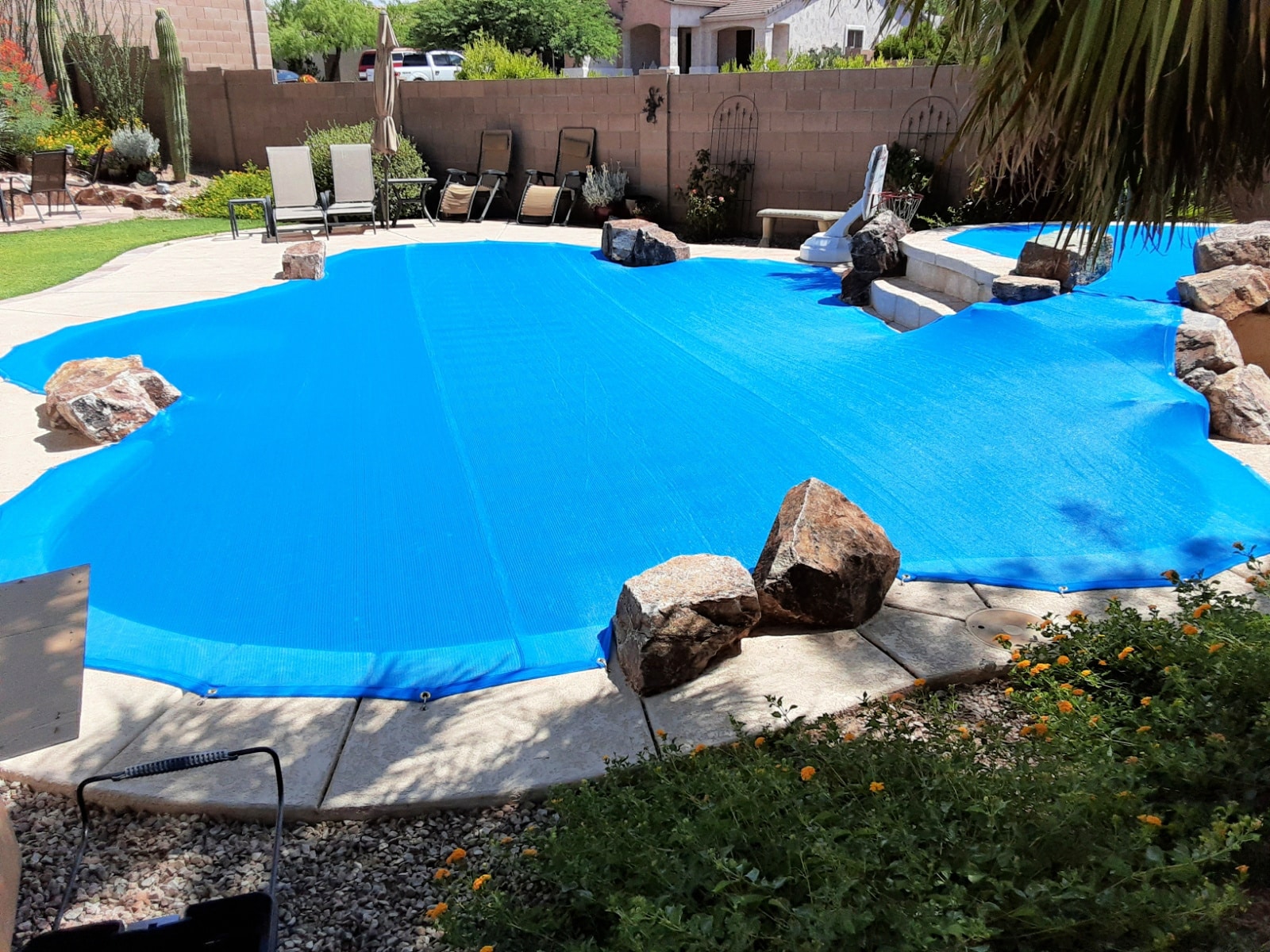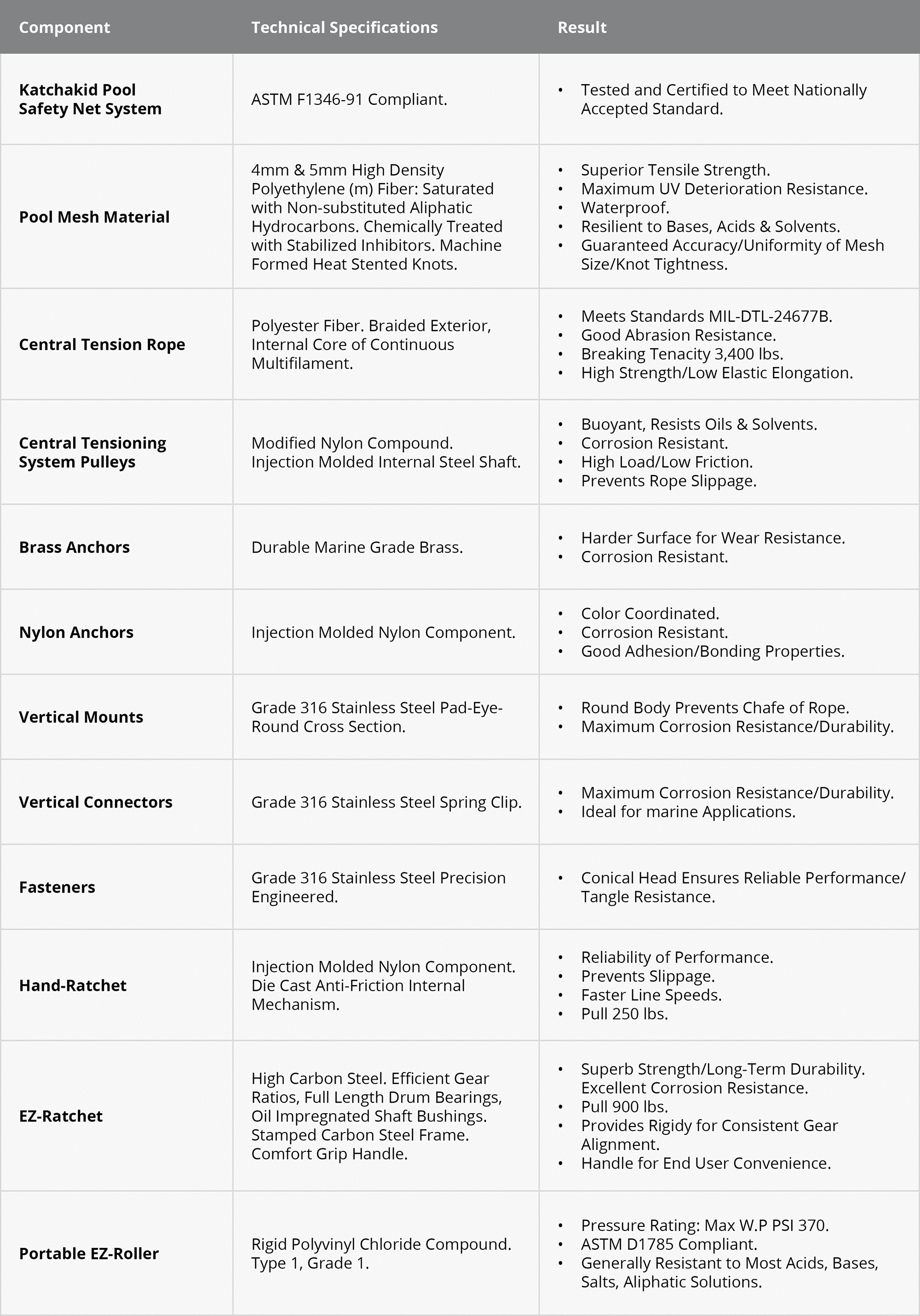If you own a pool, you know that a cover is not just a luxury but often a necessity. Pool covers are crucial for safety, reducing maintenance, and protecting your pool from adverse weather conditions. While there are various types of pool covers to choose from, two of the most common are mesh and vinyl. Though both serve a purpose, many pool owners find that mesh pool covers offer distinct advantages over their vinyl counterparts.
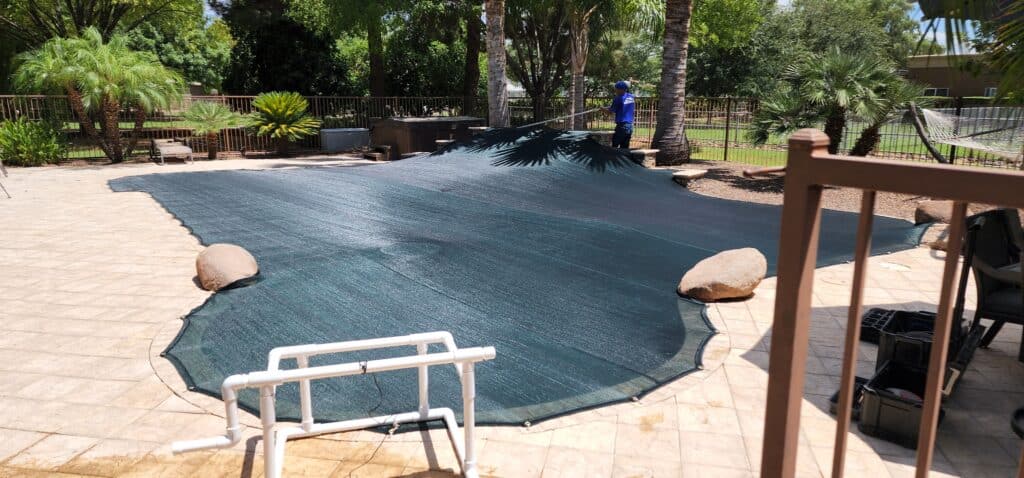
Pros and Cons: Mesh vs. Vinyl Pool Covers
Mesh Pool Covers:
Pros:
- Weight: Mesh pool covers are typically lighter than vinyl covers, making them easier to handle, install, and store.
- Usability: Thanks to their lighter weight, mesh covers are generally more user-friendly.
- Standing Water: Mesh covers allow water to seep through, which means there’s no pooling of water on top. This not only reduces weight but also eliminates the need for a pump to remove standing water.
- Durability: Mesh covers tend to be more resistant to wear and tear from the elements, given that they can allow for rain and snow to pass through rather than accumulate.
- Natural Filtration: Mesh material can filter out debris and leaves while letting water through, meaning less manual cleanup.
- Cost: Generally, mesh covers tend to be more cost-effective than solid vinyl covers.
Cons:
- Slight Dirt Passage: Some fine dirt and algae might get through the mesh. So, it might not keep the pool as clean as a solid cover during the off-season.
- Sunlight: Allows some sunlight to penetrate, which might encourage some algae growth if chlorine levels aren’t maintained.
Vinyl Pool Covers:
Pros:
- Solid Barrier: Offers a solid barrier against dirt and debris. No particles or sunlight can penetrate, minimizing algae growth.
- Retention of Chemicals: Solid vinyl can prevent chlorine and other pool chemicals from evaporating, potentially saving costs on chemicals.
- Potential for Insulation: Some vinyl covers have insulating properties, which can help in maintaining water temperature.
Cons:
- Weight: Vinyl covers are heavier, making them harder to manage, especially for a single person.
- Standing Water: Rainwater or melted snow will pool on the surface of vinyl covers, often requiring a pump to remove.
- Cost: Typically, vinyl covers are more expensive upfront than mesh covers.
- Durability Concerns: Vinyl can get damaged if water accumulates and freezes on top during winter months.
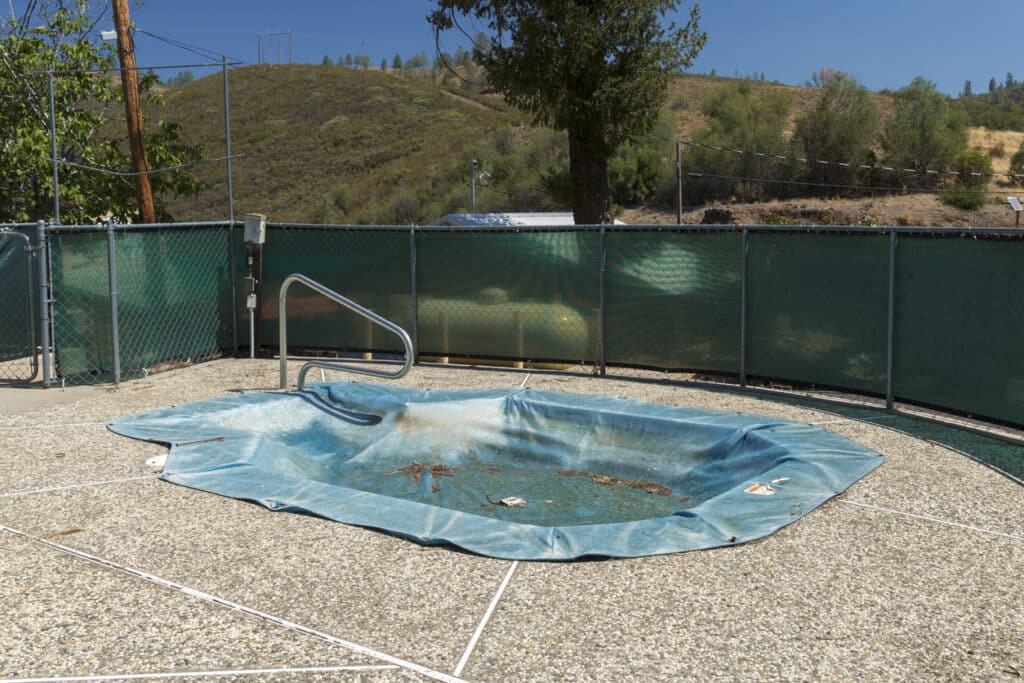
CAD Design vs. Hand Shaped
Modern pool covers, especially custom-designed ones, often rely on CAD (Computer-Aided Design) for precision and fit. This technological advantage allows manufacturers to create pool covers that fit perfectly, even for pools with irregular shapes or features.
Mesh pool covers, when designed with CAD, can provide an exact fit, ensuring optimal performance and safety. On the other hand, hand-shaped designs, while artisanal and customizable, might lack the precision that CAD provides. This might not always be a concern for simpler pool shapes but can be a limitation for complex designs.
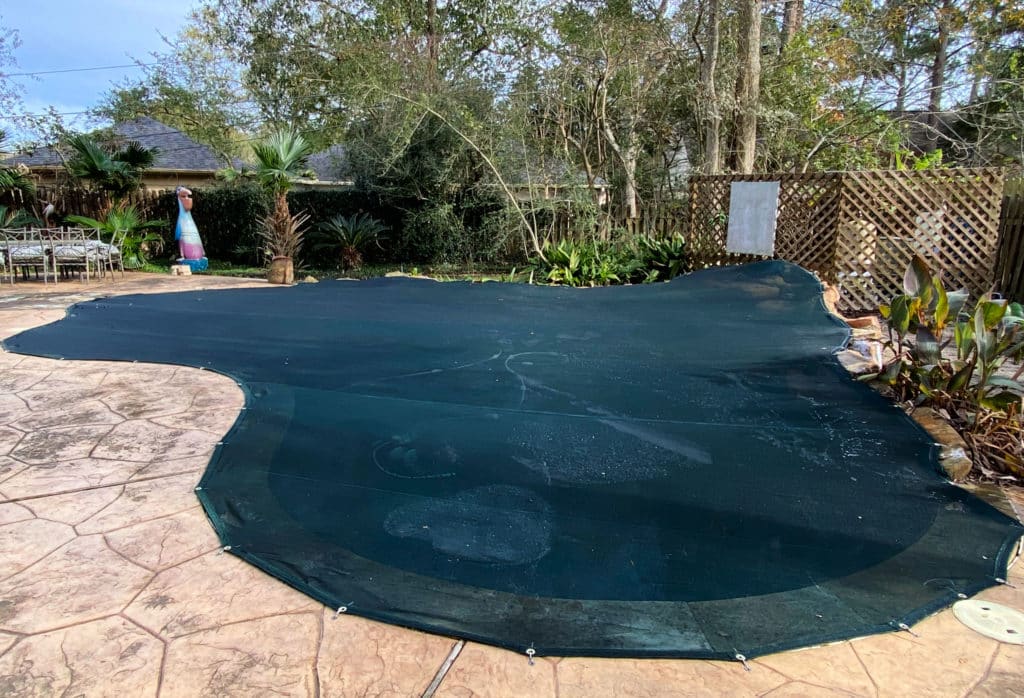
In Conclusion
Both mesh and vinyl pool covers have their place in the market, and the best choice depends on an individual’s specific needs. However, if you’re looking for a lightweight, cost-effective, and durable option that minimizes maintenance tasks like removing standing water, mesh pool covers clearly have an edge over vinyl alternatives. As with any significant investment, it’s essential to do thorough research and consider all factors before making a final decision.

